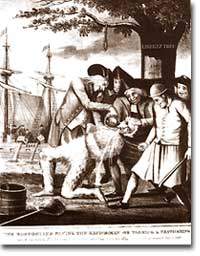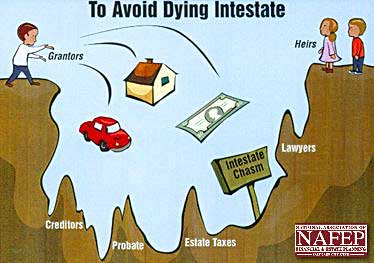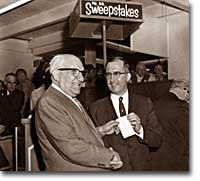Where And How Does Our State Government Receive Most Of Their Money

12b. Financing Country and Local Government

Completed in 2007, Boston'due south Primal Avenue/Tunnel Project — a.yard.a. the "Big Dig" — was the largest, near complex, and most technologically challenging highway project in the U.S. Financing came from a combination of federal, state, and local funds.
Paying taxes is surely anybody'south to the lowest degree favorite government-related activity. But taxing citizens is 1 of the concurrent powers of regime. Federal, state, and local levels all take the ability to tax.
Of course, people expect state and local governments to provide services such as police protection, educational activity, highway edifice and maintenance, welfare programs, and hospital and health care. Taxes are a major source of income to pay for these services and many others that hit close to dwelling. For nigh people, their local and state tax coin pays for very visible services that they more often than not accept for granted, except when something goes wrong with garbage collection, traffic lights, or snow removal. People are most likely to get involved with local and country governments when these basic services go wrong.
Expenses
The single biggest expenditure in all states is teaching, with the average land and the localities inside it spending just less than one-quarter of its budget for public schools. Funding for education comes primarily from the local school district budget, only most country governments give a great deal of financial and administrative support to schools. Other big upkeep items for land and local governments are the post-obit:
- Public welfare
- Health care
- Highways
- Police force and fire protection
- Involvement on debt
- Utilities and liquor stores

What would you do if in that location was a tax that didn't provide for the bones needs and services of your local surface area, and instead went to some monarch on another continent? Early American colonists had an reply. This cartoon from 1774 reads: "The Bostonians paying the excise-man or tarring and feathering."
Each of these items is less than 10% of state and local expenditures in well-nigh states, merely together they brand upwardly a good portion of the expenses.

Income
Counties, townships, cities, and states collect some of their money from licenses and fees and state-operated businesses, merely virtually one-half of land revenue comes from taxes. Two other sources of income are grants from the federal government and, in some states, lotteries. Nearly states and localities levy iii types of taxes:
- Sales taxes are the near of import source of acquirement for states. It is placed on various products, and customers pay the tax when they buy them. Today 45 states take a general sales tax that applies to most goods, although food is usually excluded, and sometimes clothing is exempt. Some cities too collect sales tax.
- Income taxes are imposed by all but a handful of states on personal and corporate incomes. Personal income taxes are generally progressive; that is, they are graduated and then that the rate goes upward with the size of the income. States generally exercise not let local governments to levy income taxes, simply some municipalities impose a payroll taxation on people that work inside their borders.
- Property taxes provide the chief source of income for local governments today. Taxes are levied on state, buildings, and personal dwellings. Property must be assessed for its value, and about cities employ tax assessors for that job. Holding taxes are controversial because other types of property, such as stocks, bonds, and banking concern accounts, generally are non taxed. Those who concord "real" property, then, pay a asymmetric share of the taxes.

You lot've heard about "death and taxes" but this is a double whammy: if a person dies "intestate" — without having created a will or trust for his or her heirs — both federal and state governments are poised to accept a hefty chunk of that person's estate by imposing inheritance and estate taxes.
Other taxes include inheritance and estate taxes imposed when a person dies and wills property to heirs. Several states have severance taxes, levied on those that excerpt natural resources such as coal, oil, timber, and gas from the state. Virtually all states place special excise taxes on gasoline, liquor, automobiles, and cigarettes.
Most states get more than than a quarter of their income from federal grants that normally come with restrictions equally to how the coin can be used. Federal grants often go for building projects, such as roads, bridges, and dams, and for education, health intendance, and welfare.

In 1964, the New Hampshire Legislature created the starting time legal land lottery of the 20th century. Hither, the first ticket is sold to Governor John W. King.
In recent years more and more states have turned to lotteries to pay their expenses. Billions of dollars at present come from lotteries, with states retaining about one-tertiary of the coin as proceeds. Some states designate that the money be spent on something special, such as education, the arts, or building projects. Lotteries are controversial because some people believe that lotteries hurt lower-income people, who buy most of the tickets.
Taxes, federal grants, fees, licenses, and lotteries support state and local budgets. Near people empathize more virtually where their state and local taxes and fees go than they do about federal expenditures. Perhaps that is considering state and local services tend to affect their personal lives more directly. Nevertheless, many complain that they practice not get their money's worth. It is always easier to recognize the pinch that taxes bring than the services most people take for granted.
Source: https://www.ushistory.org/gov/12b.asp
Posted by: olivertoorse.blogspot.com


0 Response to "Where And How Does Our State Government Receive Most Of Their Money"
Post a Comment